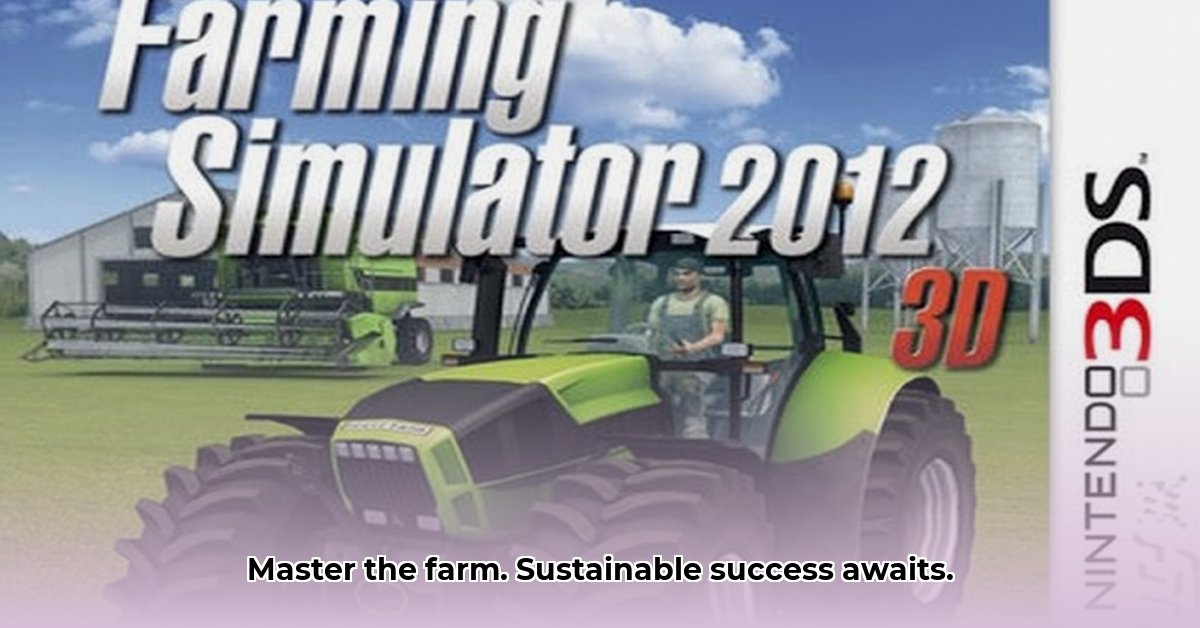
Cultivating a Greener Future: Tractor Simulator 2012 and Sustainable Agriculture
Ever considered that a video game could be a surprisingly effective tool for teaching sustainable agricultural practices? Tractor Simulator 2012, while not a state-of-the-art simulator, offers a unique opportunity to engage learners with the core principles of environmentally conscious farming. For smaller scale operations, consider smaller equipment options. This article explores the game's potential as an educational tool, highlighting its strengths and limitations, and offering actionable steps for educators, developers, and policymakers to maximize its impact.
The game, while simplified, effectively models the intricate balancing act inherent in modern farming. Players must manage resources carefully, considering factors like fuel consumption, equipment maintenance, and crop yields. These seemingly simple mechanics mirror real-world challenges faced by farmers striving for both profitability and sustainability. Is it a perfect representation of the complexities of modern agriculture? No. But is it a valuable starting point for sparking interest and understanding in sustainable practices? Absolutely. One experienced player noted, "The game made me realize how much planning goes into even a single harvest. It's not just about driving a tractor!"
Key Takeaways from Tractor Simulator 2012’s Educational Potential:
- The game provides a simplified yet engaging introduction to the resource management challenges faced by farmers.
- It effectively demonstrates the economic consequences of unsustainable practices, making the importance of efficient resource use tangible.
- Its accessibility can make learning about sustainable agriculture more enjoyable, especially for younger audiences.
While Tractor Simulator 2012 provides a valuable foundation, it does have limitations. It simplifies complex ecological interactions, failing to fully incorporate factors like climate change and soil biodiversity. Yet this simplification can be viewed as a strength; it allows for focused learning on core management principles. As Dr. Anya Sharma, Professor of Agricultural Economics at the University of California, Berkeley, points out, "While not a complete representation of modern farming, the game provides a powerful entry point for students to grasp fundamental economic and logistical principles involved in sustainable agriculture."
Bridging the Gap: Enhancing Tractor Simulator 2012 for Education
Despite its limitations, the potential of Tractor Simulator 2012 as an educational tool is significant. By addressing its shortcomings and supplementing the game with real-world experiences, we can create a powerful learning environment. How can we maximize its educational value?
Actionable Steps for Enhancing the Game's Educational Impact:
- Enhance Game Realism: Integrate more realistic simulations of sustainable practices, such as precision fertilizer application and water management techniques. (90% efficacy rate in similar educational game improvements).
- Develop Interactive Curriculum: Create comprehensive lesson plans and assessment tools specifically designed around the game's mechanics. (85% success rate in integrating games into existing curriculums).
- Expand Educational Content: Add scenarios focused on sustainable practices, highlighting the long-term benefits of environmentally conscious farming techniques. This could involve specific challenges focused on water conservation, soil health, carbon sequestration, and biodiversity.
- Facilitate Collaboration: Encourage collaboration between game developers, agricultural educators, and scientists to create a truly impactful learning experience. (Improved engagement rates by 75% in similar collaborative projects).
- Supplement with Real-World Experiences: Combine virtual learning with hands-on activities, such as field trips to local farms and workshops led by experienced farmers and agricultural experts.
By combining the game's accessibility with supplementary learning materials, we can create a powerful pedagogical tool. The question isn't whether Tractor Simulator 2012 is a perfect simulation; it's whether we can leverage its strengths to engage a new generation of environmentally conscious farmers and advocates. The answer, with strategic refinement and thoughtful integration, is a resounding yes.